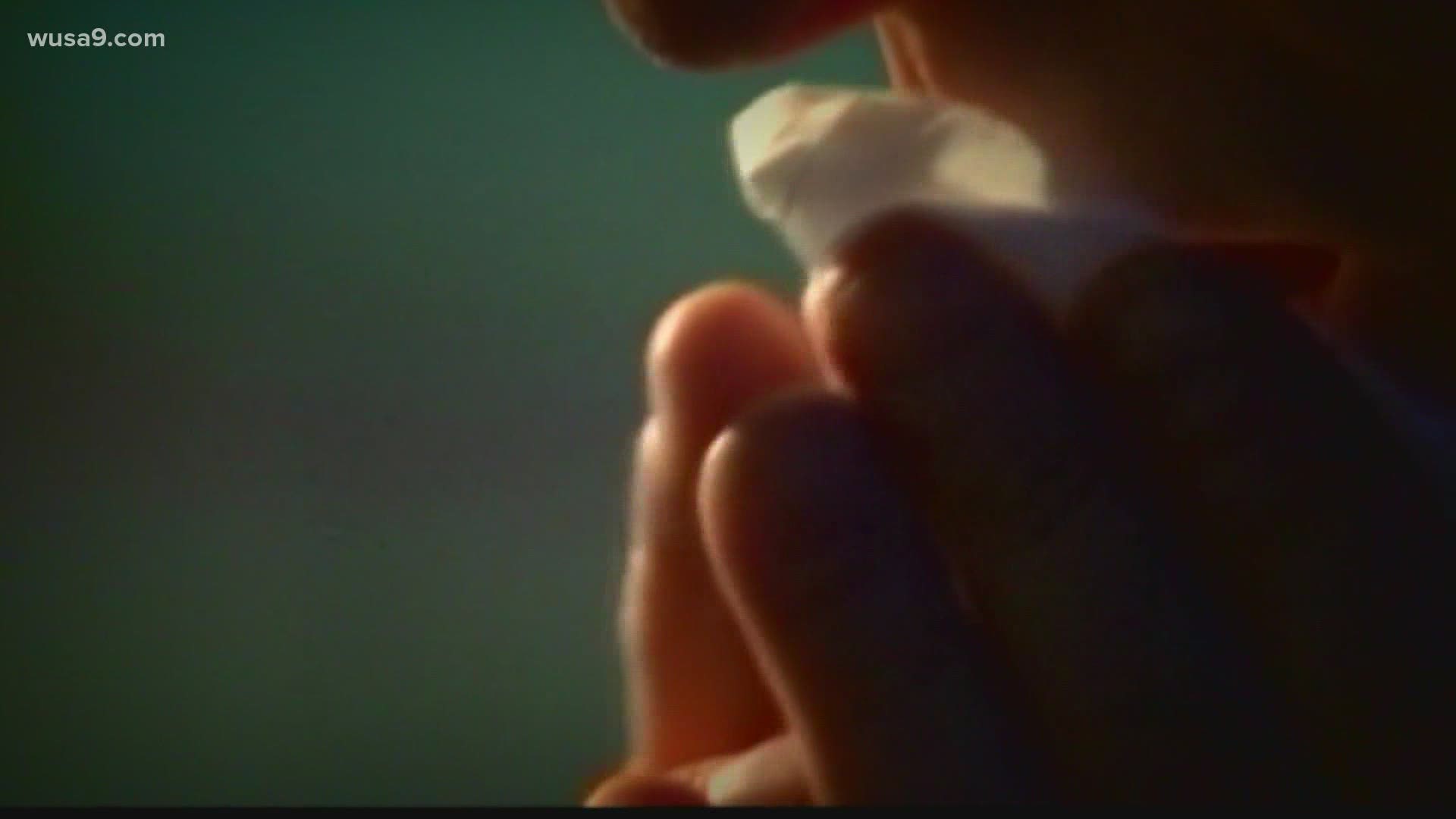WASHINGTON — If you have come down with a cold recently, you should know you are not alone. Doctors said more people are getting colds this year than last.
A big reason for the spike in summer colds is due to major changes in how people are approaching life during the pandemic, according to Dr. Michael Knight, Associate Chief Quality and Population Health Officer, with GW Medical Faculty Associates.
“As we know, the precautions recommended to prevent COVID-19 such as washing your hands, social distancing, and mask-wearing also prevent the transmission of other respiratory viruses,” he said. “Now that people are socializing, going back into crowded spaces, and no longer wearing masks, the rate of infection for respiratory viruses will also increase as expected.”
Dr. Murray Ramanathan serves as the Director of Johns Hopkins Otolaryngology-Head and Neck Surgery department in the Greater Washington Area. He said he is also seeing more people in our area come down with colds than he did in 2020.
However, Ramanathan added there does not appear to be an increase in cases compared to 2019. Still, he said locals should always use caution to protect themselves from that illness.
“If you're indoors or you're around sick people, you can always spread colds and in certain times the temperature can also be helpful in spreading the infection,” he said.
Ramanathan said it can also be very difficult for people to distinguish between the symptoms of coronavirus and a summer cold. He said if a person’s symptoms persist, they should get tested for COVID-19.
“A lot of people will tell you at first [the coronavirus] felt like allergies, it felt like a cold and then they felt significantly worse,” he said.
Either way, doctors said this all goes to show it is probably a good idea to keep using healthy practices.
“Hand washing should continue, cover your cough or sneeze, and if you are feeling sick, stay home and avoid crowded areas where you could pass a respiratory virus to someone else,” Knight said.
Ramanathan said masks have made a major difference in his workplace.
“As a nose doctor, I look in people's noses all day long. I used to get sick, minimum, four times a year,” he said. “But, now, we're in clinic with N95 respirators. So even if we're around sick people, we're not really exposed.”

